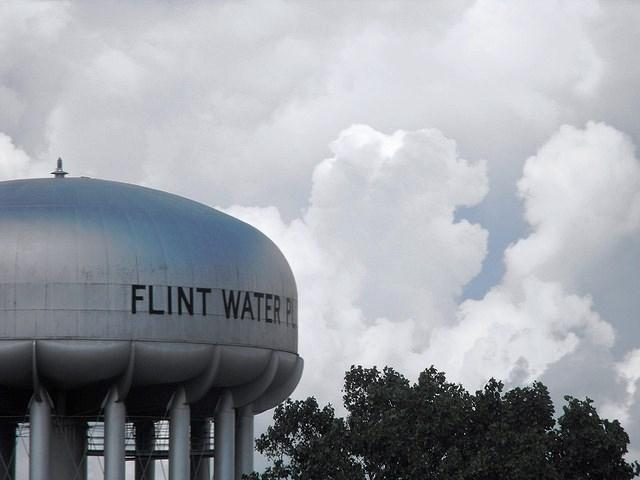The Flint water crisis has dominated Michigan news for months, but even by that standard, the last two weeks have been eventful. A much anticipated report from Gov. Rick Snyder’s Flint Water Advisory Task Force emphasized the role of the Michigan Department of Environmental Quality in the failure. Still, the Governor was not spared.

Flint water tower. Image: Ben Gordon, Flickr.
Among other recommendations, it said the Governor’s office needs to include more people and more departments in the decision-making process. It also described the episode as an example of “environmental injustice.”
Meanwhile, critics continue to call for Snyder’s resignation because of Flint.
Current State speaks with Snyder administration spokesman Ari Adler about the impact of FEMA’s decision late last week to extend emergency status to Flint through August.
INTERVIEW HIGHLIGHTS
On FEMA’s emergency status in Flint being extended
“Certainly it’s a positive to have the FEMA extension. It helps with us additional federal resources we’ve been using. It takes us all the way through August. Hopefully we’ll be in a position then where things will be moving along better in Flint, in terms of water delivery. State resources will have to continue to fill any gaps after that date.” – Ari Adler
Does the Governor feel he was treated fairly in front of Congress?
“The Governor thought it was important to go there. That’s why he volunteered to testify. He thought it was important to go and answer the questions that were being asked by Congress, but were really being raised on the behalf of the people of Flint – and of Michigan. From the beginning he has apologized and taken responsibility. He believes it was a failure of government on all levels – local, state and federal. The only one he has control over is state government, so he’s going to do whatever he can to address the problems that caused this water crisis.” – Adler
On accusations of environmental injustice in Flint
“Certainly there was no decision that was made because of anybody’s particular race, or what the population of a city is. It was a mistake at the city level to not include corrosion control when the Flint River was used for the water source. It was a failure at the state level because the Department of Environmental Quality did not follow up on corrosion control. Then when questions were raised about that by independent water experts, instead of the DEQ re-evaluating what it was doing, they went into a defensive posture.
It wasn’t a decision that was made because of race. What you are finding in situations like this, though, is that when you have a city that has socioeconomic challenges like Flint does, it can be much more difficult to recover. That’s why the Governor’s plan to restore water in Flint is really about restoring Flint as a city. So we’re looking not just at water and water quality – but also health care, education, jobs and economic development to help bring that city forward.” – Adler
On whether Governor Snyder has met with Flint citizens face-to-face
“We have not had a direct town hall meeting. Yes it allows people to vent, but does it really get anything solved? That’s a question we have to ask ourselves.” – Adler
This story appeared on WKAR’s Current State and is republished here with permission.